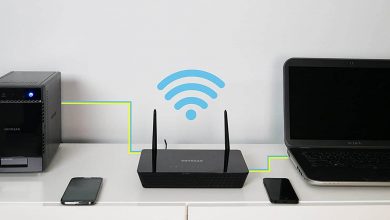How to install an electric car charging station

There are many reasons people are turning to EVs (electrical vehicles) as their mode of transportation these days, including the cost per mile cost of driving which enables drivers to save on average about 50% more on fuel costs for a 100-mile trip.
Of course, with EV cars also comes the subject of range anxiety and the accessibility of electric car charging stations which is the topic of this article. Read on to learn what is required to install a charging station at your home.
About Electric Vehicle Charging Stations
In short, an electric vehicle runs on a battery similar to a laptop or cell phone, which means if the battery’s electricity is depleted, it will not operate until you recharge it.
Hence, the EV will need to be plugged into an electrical outlet to charge its battery, or more specifically an electric vehicle charging station which is designed to charge your car battery as fast as possible.
Like a laptop or cell phone, an electric vehicle needs a dedicated charger which converts the electricity into a current flow that the battery pack can use.
The Different Types of Electric Vehicle Charging Stations
An electrical vehicle charging station is either level 1, level 2, or level 3, which ultimately determines its charging power.
Level 1 Charging Stations
Level 1 charging stations offer the simplest and most low-cost way to fuel an electric vehicle, and most cars come already equipped with the charging cable when you lease or purchase it.
The charger also only uses between 110 to 120 volt AC, which is the basic current flow provided by a common 3-prong wall outlet, so it can simply be plugged into one of your home’s AC sockets to charge the car.
However, because it delivers such a low voltage, it can take up to 50 hours or more to fully recharge your car, with the exception of hybrid electric vehicles, which can be recharged overnight.
Otherwise, in general, the time calculation when using a level 1 charging station is about 4 miles of battery range for every hour of charging.
Level 2 Charging Stations
Level 2 charging stations provide up to 240 volts, which is about the same voltage used by basic stove ovens.
There are also portable level 2 charging stations that simply plug into the same multi-prong socket as your stove. However, many people simply choose to have an electrician install a 240-volt charging station in their garage, so they have a dedicated outlet for their car.
Level 2 portable stations, however, are great to have with you while traveling, so you don’t have to fret about locating a commercial charging station to recharge your battery.
In most cases, a level 2 charging station will recharge a pure EV in about 12 hours or less, while an EV hybrid typically only takes about a couple of hours to charge using level 2 voltage.
Level 3 Charging Stations
Level 3 EV charging stations are mainly designed for commercial use to enable faster charging times.
In fact, some level 3 charging stations can provide a full charge to a completely depleted EV in just an hour or less.
The Cost to Install an Electric Vehicle Charging Station in Your Home
The basic cost of installing an electric vehicle charging station in your home ranges in price based on the installation as well as the amount of electricity the charging station provides.
You also need to factor in the charging cable, which will also range in price, depending on its complexity as well as if you choose to have it mounted on the wall or not.
If you choose to have a level 2 charging station installed in your home, generally, it requires an experienced electrician to do the work, which will also add to the cost.
In the meantime, a level 2 charging station can run as high as $700 or more for a state-of-the-art, hard-wired wall-mounted unit. The electrician may also have to modernize your home’s electrical system to accommodate the install, so be sure to also factor this into the price.
You will also most likely require a permit from your local authorities granting their permission for the install.
Hence, overall, installing a level 2 electric car charging station in your home can cost anywhere from $1000 to $2,000 or more.
Meanwhile, as stated earlier, level 3 charging stations are typically more for commercial use because they can cost up to $50,000 or more to install, and the amount of power they require is generally not supported by the electrical grid in many residential areas.
What Factors Determine How Long It Takes an Electric Car to Charge?
How long it takes an EV to recharge is mainly based on the amount of power left in the battery pack at the time of charging. Therefore, you can shorten the charging time by simply keeping the battery topped off, so the recharging time is never a concern.
However, should your battery ever become fully depleted, a public EV charging station can have it recharged in about an hour or less, provided it is a level 3 charging station.
On the other hand, recharging a fully depleted battery pack using a level 1 charging station can take up to 4 days or more.
Lastly, the battery’s overall capacity and its state of charge will also affect its charging time.
In the end, you will need to factor all costs to install an electric car charging station in your home, as well as the location of commercial charging stations near you, to determine if making the switch to an EV car is right for you. However, the lower cost per mile of driving an EV makes it worth considering.




